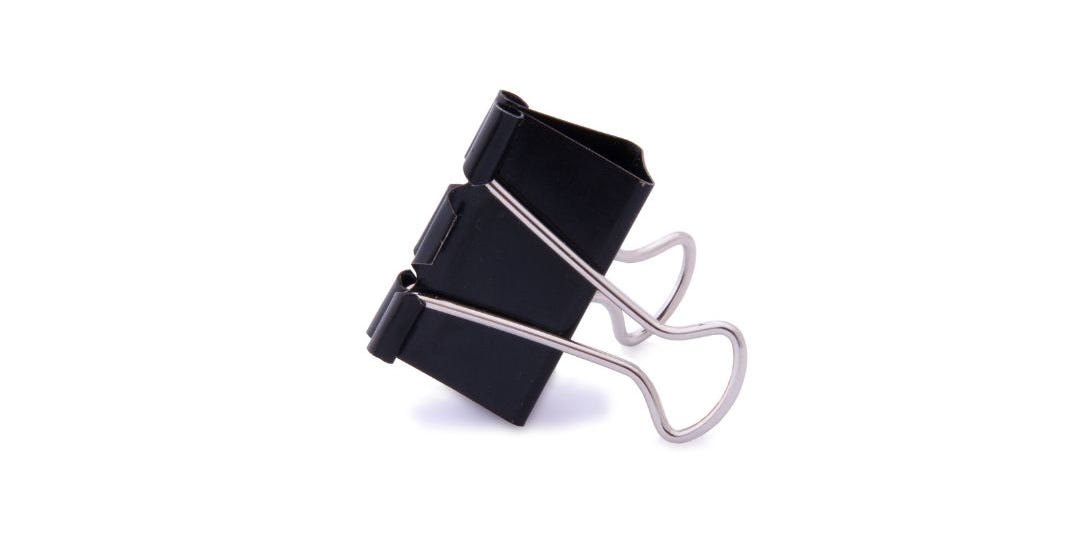As I write these words, we are plunging (being plunged) into a trade war, with U.S. tariffs on Chinese goods at 104% and Chinese tariffs on U.S. goods set to increase to 84% tomorrow.
It’s a good time to cure yourself of consumerist tendencies, but if you’re an American living in America, and absolutely require retail therapy, I recommend buying American.
Around 90% of Apple’s iPhones are “assembled” in China, so it’s definitely not a good time to upgrade your personal electronic device, but one of my favorite products is easily obtainable from American manufacturers.
According to Wikipedia, the binder clip was invented and patented in 1910 by Washington, D.C. area resident Louis E. Baltzley, to help his father, a writer and inventor, hold his manuscripts together more easily. Baltzley secured U.S. patent 1,139,627, producing his clips through the L.E.B. Manufacturing Company, and later licensed manufacturing rights to other companies.
Why would you be interested in purchasing binder clips?
In fairness, that’s a good question, because if you work in an office, you can almost certainly steal more binder clips than you could use in a lifetime, and no one will either notice or care.
But assuming you want to support the American economy, and who doesn’t, binder clips are an excellent choice.
In my experience, they are a fantastically versatile MacGyver-esque tool.
I use binder clips to hold cables in place, and as clothespins.
I use binder clips to fasten bags of crisps/chips, on the rare occasions when I can’t finish the bag in one sitting.
I have used a binder clip as an industrial-chic money clip.
A binder clip has been used to safely land the world’s fastest bomber aircraft.
And for years I have used a binder clip to keep my toothpaste tube under control.
As I use up the toothpaste, I fold the tube into an accordion, fastening the empty sections with a binder clip.
I had a girlfriend once who had a messy toothpaste tube (you want to keep all of the toothpaste up near the mouth of the tube, so it can be easily squeezed onto your toothbrush), and when I pointed out the genius of my method, she said, “Yeah, I’ve seen that before.”
I said, “Can I get you a binder clip for your toothpaste?”
She said, “No.”
Dumbfounded, I asked, “Why not?”
She replied, “I don’t like it.”
We’re not together anymore.
Make American manufacturing great again. One binder clip at a time.





So they’re amazingly versatile, and great for many things, but they can’t hold a relationship together?
I have a jar full of binder clips in the kitchen, and I can assure you they are very useful (even if they are not very aesthetically pleasing!)